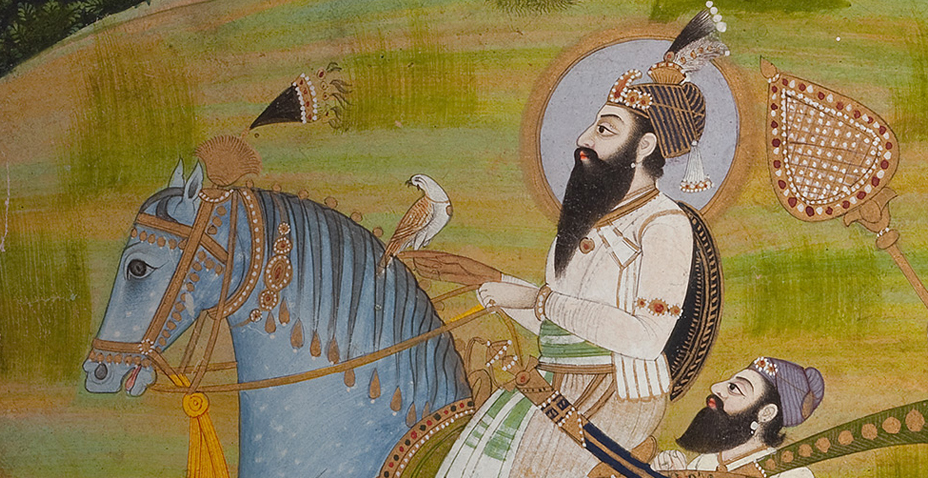Celebrate the artistic and cultural heritage of the Sikhs.
Asian Art Museum – March 10 – June 25, 2017
With nearly 27 million adherents worldwide, Sikhism is among the world’s largest religions, and also one of the youngest. A diverse selection of 30 paintings, prints and textiles celebrates the artistic and cultural legacy of the Sikhs and the community’s longstanding connection to California. Delve into the life and teachings of Sikhism’s founder Guru Nanak (1469–1539), a charismatic, influential teacher who defined the religion’s fundamental philosophies, which emphasize belief in one god, equality, social justice and community service.
This exhibition explores the artistic and cultural creativity that flourished under the patronage of India’s Sikh kingdoms, established in the 1800s by the dynamic warrior Maharaja Ranjit Singh (1780–1839), which was continued by later Sikh rulers. Portraits and treasured objects belonging to the Maharaja himself are included in the exhibition. In particular, the portraits reflect expressions of personal and cultural identity, as well as the artistic styles of the times and places in which they were made.
Saints and Kings also draws attention to the Sikhs’ special connection to California. Among the earliest Indian immigrants to North America, Sikhs arrived on the West Coast in the early 1900s and have been integral to communities here for over a century. Today, many occupy leading roles in technology and other business sectors. Through an illustrated timeline, the exhibition tells an important story that has shaped the Bay Area’s diverse social and immigrant history.
Top image: Portrait of the tenth guru, Gobind Singh (detail), approx. 1830. India or Pakistan; Punjab region. Opaque watercolors and gold on paper. Asian Art Museum, Gift of the Kapany Collection, 1998.95. Photograph © Asian Art Museum. See original page at The Asian Art Museum

